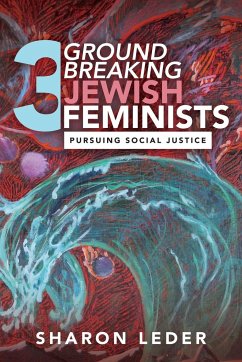Three groundbreaking Jewish feminists-- women's historian Gerda Lerner, feminist Surrealist artist Susana Wald, and former CEO of American Jewish World Service (AJWS) Ruth W. Messinger--devoted their careers to a universal message inherent in the Jewish tradition-no one should be made into a stranger. Though different in their personal histories and professional fields they found ways to empower marginalized and outcast populations doing so publicly and intentionally as Jews after significant periods of having muted Jewish identity. Their lives raise the question: Is simultaneous commitment possible both to Jewish continuity and to helping non-Jewish strangers in need? Ruth W. Messinger, probably the most well-known, made it clear and public only once she became CEO of American Jewish World Service that being Jewish means being your brother's and sister's keeper, regardless of their nation, race, sexual identity, class or religion. She expanded the Jewish universe of obligation to include non-Jews in crisis around the world. Both Gerda Lerner and Susana Wald were Holocaust survivors who escaped to the Americas from dictatorships. Following the command in Exodus, "You shall not oppress a stranger . . . having yourselves been strangers in the land of Egypt," they connected their vulnerability as Jews in Europe to populations in the U.S., Chile, and Mexico also targeted by discrimination-women, Blacks, and indigenous peoples. Gerda Lerner, a professor at the University of Wisconsin, demonstrated the existence of American women's history, including Black women's history, as academic fields of study. Why did she mute her Jewish identity until the last decades of her career when the first intifada in Israel broke out? Susana Wald is one among few female Surrealist artists devoted to social change who is not known as "wife of . . .". Why did she mute Jewish identity for years, until the mass demonstrations for indigenous people's rights in Oaxaca, Mexico when she addressed audiences in person and on radio? For Jews and non-Jews, this book illuminates how universal values drive three women to become public about Jewish identity because they view the purpose of Jewish life to be alleviating inequity and suffering of all people.
Bitte wählen Sie Ihr Anliegen aus.
Rechnungen
Retourenschein anfordern
Bestellstatus
Storno









